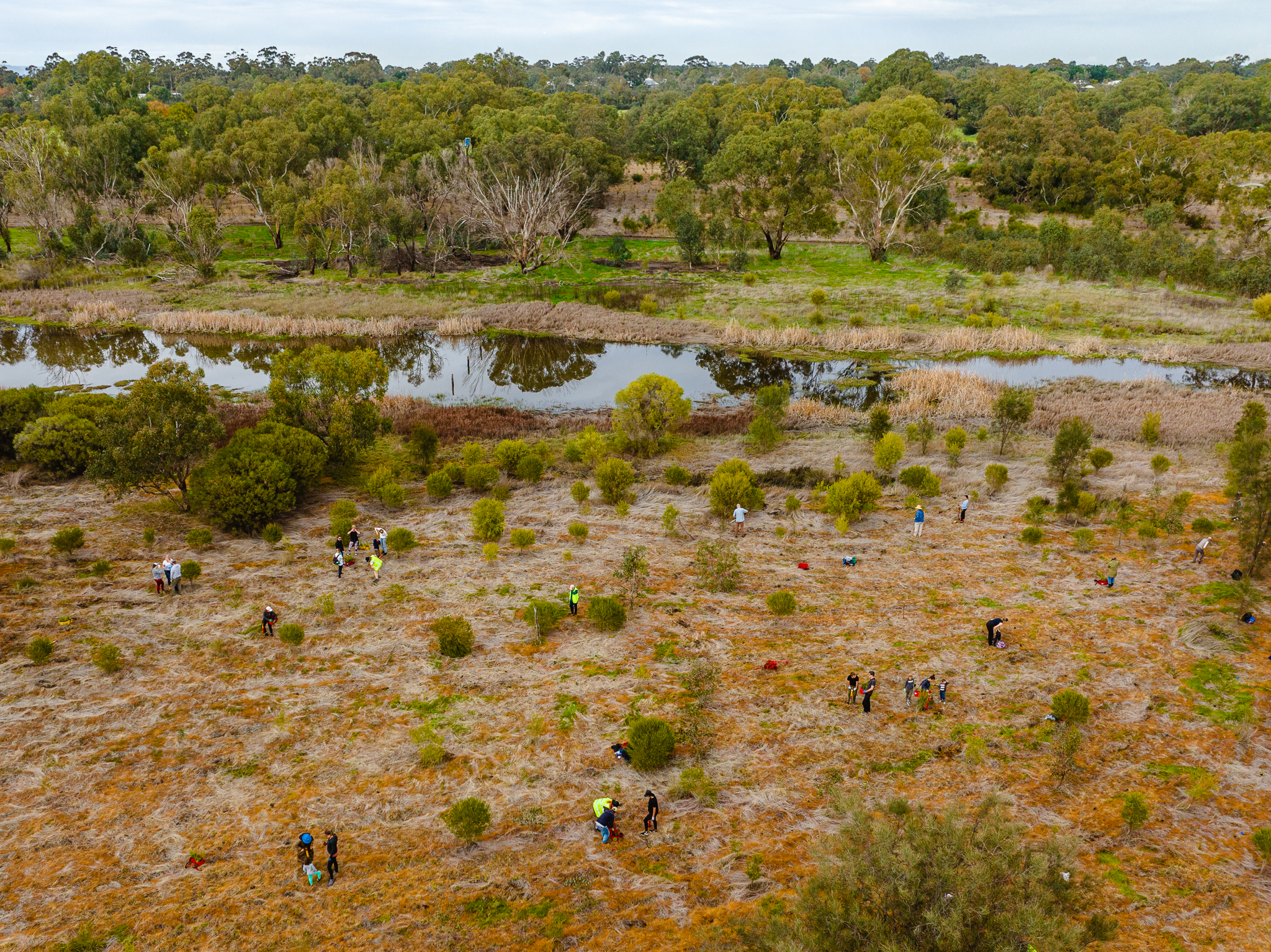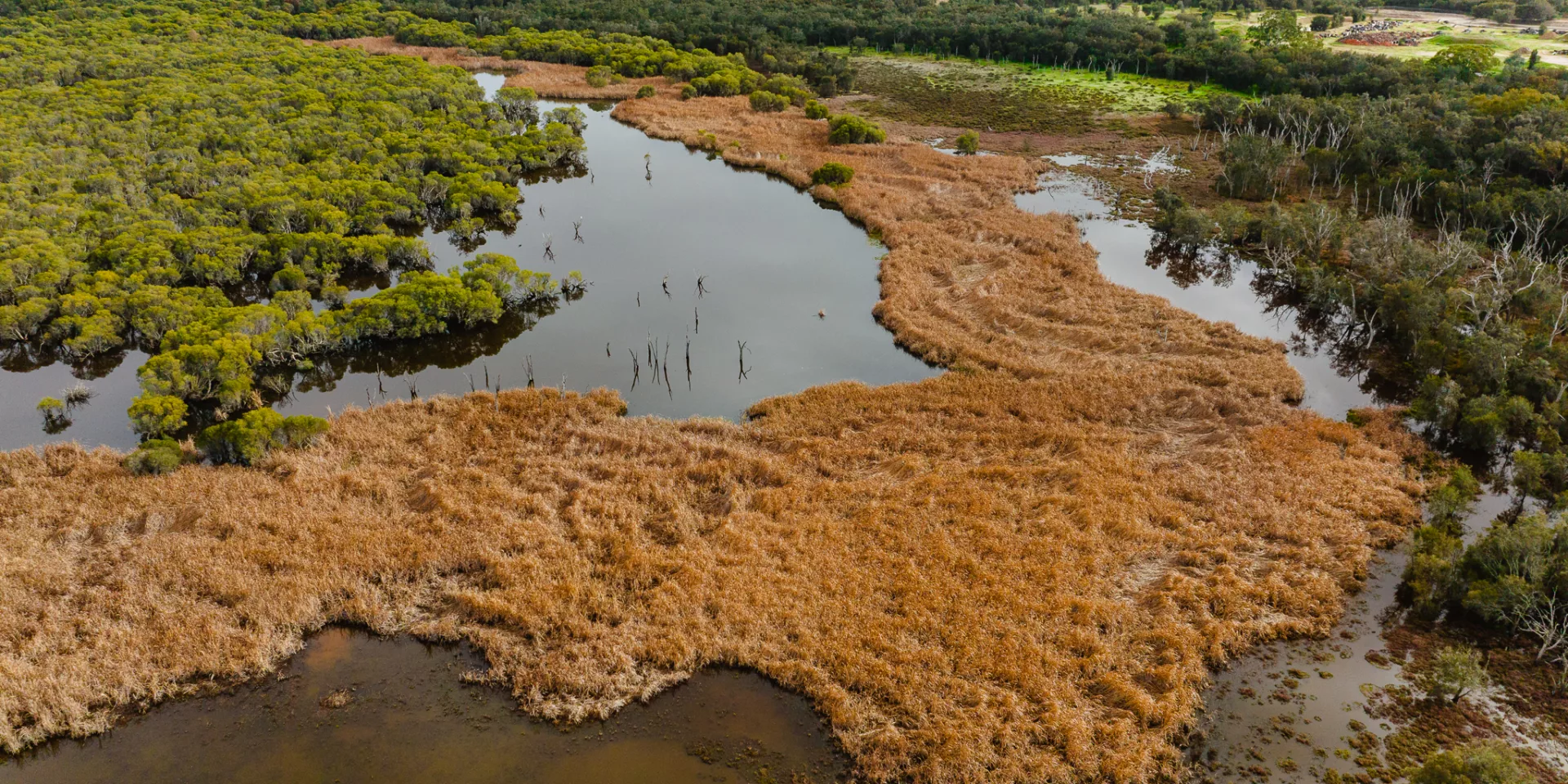"Over a third of global wetlands have disappeared since the 1970s. In Australia, less than 30 per cent remain. Urban development and expansion of industry is pushing our wetlands to the brink of extinction." - Denise True, CEO, Trillion Trees Australia.
Trillion Trees Australia is working to buffer a large, ecologically significant remnant wetland in Perth’s eastern region.
Trillion Trees Australia’s Restoration Manager, Julian Beasley, is coordinating the Mandoon Moitch Restoration Project in Guildford alongside a team of volunteers, a project he says is vital now that "natural wetlands have almost disappeared in urban areas".
“The wetland and the surrounding area is crucial nesting habitat for birds, marsupials, terrestrial reptiles, and many aquatic species. It’s the last remaining intact wetland of this scale in the region."
Located along the Derbarl Yerrigan (Swan River) and culturally significant to local Noongar people, the wetland forms part of the highly diverse Bennet Brook river system within Whiteman Park. Home to more than 70 nationally protected threatened and endangered species and ecological communities, the area also contains critically endangered Tuart (Eucalyptus gomphocephala) Woodlands.
Heavily cleared for agriculture in the 1930s, Trillion Trees Australia began carefully restoring the degraded farmland surrounding the wetland to buffer and protect this delicate ecosystem in 2016, and have planted over 67,000 biodiverse trees and understory.

Fed primarily by groundwater seepage from the Gnangara Mound, which provides up to 60 percent of Perth’s drinking water, Julian said greater understanding is needed about the "critical role" of wetlands for a "liveable" planet.
“Maintaining healthy wetlands, particularly those in urban areas that are most impacted by development, is so important for water storage and recharging ground water supplies; all essential things to ensure surrounding ecosystems survive. Most critical, for us as humans, wetlands help protect water quality downstream into key river systems.
"Wetlands also support an incredible variety of plants and animals that cannot live anywhere else."
Fighting climate change faster than a forest.
“We know that wetlands absorb carbon dioxide and other pollutants from the atmosphere at a rate much higher than forests,” said Trillion Trees Australia CEO, Denise True.
“These highly complex ecosystems are our best defence in slowing down the effects of climate change. Our focus with the Mandoon Moitch project is to restore both the ecological and cultural components and that’s why community support is so important."

